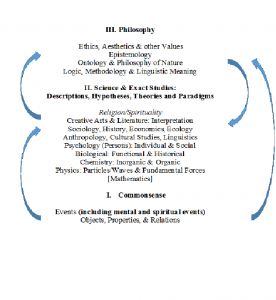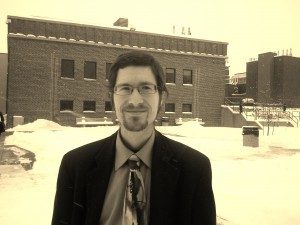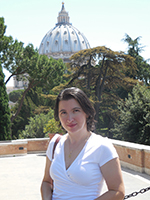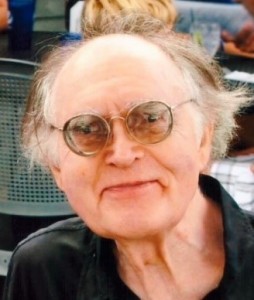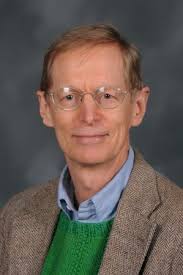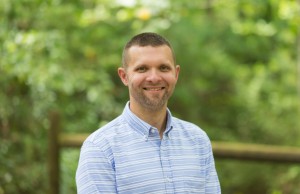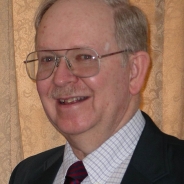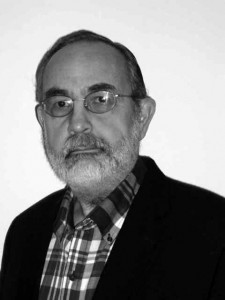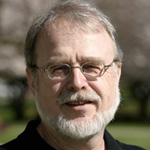 Philip H. Wiebe is Professor of Philosophy at Trinity Western University, Canada. We invited him to answer the question “What does philosophy of religion offer to the modern university?” as part of our “Philosophers of Religion on Philosophy of Religion” series.
Philip H. Wiebe is Professor of Philosophy at Trinity Western University, Canada. We invited him to answer the question “What does philosophy of religion offer to the modern university?” as part of our “Philosophers of Religion on Philosophy of Religion” series.
If the sciences are viewed are emerging out of the commonsense conceptual framework, philosophy takes its place as critical commentary on these two domains in an attempt to understand their implications for methodology, ontology, epistemology, meaning, and values. The following diagram pictorially presents the three domains, and includes the familiar hierarchy expected by many physicalists to reflect current or eventual scientific discoveries, viz., Chemistry’s dependence on Physics, Biology’s on Chemistry, etc. (reading Section II from the bottom up).
The arrows indicate direction of influence, e.g., philosophy influences science and vice versa, but philosophy has little effect on commonsense. We could put meta-philosophy on the top of the figure as a fourth domain, and also try to include all the subdomains that have evolved as ‘Philosophy of X’, including Philosophy of Religion, but this makes discussion here needless complex. The traditional areas are all profoundly normative (besides being descriptive), which is still beyond satisfactory explanation, I think.
I have placed ‘Religion/Spirituality’ in the hierarchy of social sciences, which is perhaps a controversial move. This field depends upon the concept of person, which is central to all the social sciences, and so exhibits important ties to anthropology, history, sociology, economics, etc. I accord every level in Section II provisional ontological authority, without insisting upon reduction to Physics, unlike Physicalism. Whether reduction is achievable is presently unclear. We would hamper the work of the natural and social sciences if we were to insist on this reduction, so bowing to physicalism’s vision for the future is premature. Meanwhile, if we can get a reduction, why not take it? Here we touch on a delicate matter concerning religion.
Religion has been plausibly described as a descriptive & explanatory domain focused on spirit, which is alleged to be non-physical. I place Religion on the diagram since spirits are construed, at the very least, as beings with minds. Atheism maintains that no minds (in the spiritual sense) exist besides those found in humans (and perhaps some animals). The conflict between atheism and religion is now obvious – it is fundamentally a disagreement at the level of Ontology. Philosophy of Religion exists to engage this question, among others. Physicalism cannot announce its triumph until it has successfully argued that spirit is neither needed nor plausible.
Mental events are instructive in thinking about Philosophy of Religion. As discussion over Philosophy of Mind unfolded in the last century, various strategies were proposed for understanding ‘mental terms’ and the states they were supposed to denote, which include the phenomena described in religious and spiritual experiences (RSEs) as a proper subset. Psychological behaviorists who followed B F Skinner construed such terms as having no place at all in scientific descriptions and explanations of human behaviors, so such mental terms as ‘hoping’, ‘expecting’, and ‘feeling’ were not needed in recording observations. Philosophical behaviorists who followed Rudolf Carnap and Gilbert Ryle interpreted mental terms as denoting human behaviors or (physical) dispositions to act. Still others construed mental terms as having no denotations at all, much as claims about phlogiston have none, since phlogiston does not exist. The eliminativism of Richard Rorty, Paul Feyerabend, and Patricia Churchland gradually gave way to functionalist accounts or to identity theories in which ‘mental talk’ was seen as denoting states or processes that are thoroughly physical in character, to be described, eventually, in neural terms by language that is indisputably public. The identities between mental and neural states are already thought to be corroborated by neural activity detected by MRIs and other novel technology.
If eliminativism had been successful in Philosophy of Mind, RSEs would have quietly disappeared; however, the success of functionalist and identity theories mean that the terms describing RSEs may still be significant for theorizing. The term ‘religion’ is sometimes avoided because of the untoward events associated with religious movements, including ancient Hebrew ethnic cleansing, medieval Christian Crusades, and present-day Muslim jihad, but the term ‘spiritual’ (or ‘spirituality’) is an alternative. Many people now say that they are spiritual, but not religious. If we replace the term ‘religion’ in the phrase ‘Philosophy of Religion’ with the term ‘spirituality’ we get ‘Philosophy of Spirituality’, which has a markedly different connotation than its predecessor. Three observations:
- The non-Abrahamic religions have already left their mark on Western culture, and the forms of spirituality that they open up seem more popular than those that Western culture has recognized and celebrated. The general field of spirituality brings into focus several related fields of inquiry requiring critical, but sympathetic, attention. The scope and range of RSEs is yet to be determined, although Sir Alister Hardy made a good start, with his Religious Experience Research initiative now operating out of the Lampeter campus of the University of Wales.
- Near-death experience (NDE) has demonstrated that just this one kind of experience, often having spiritual significance, is worthy of close attention. As many as 5% of the US population is said to have experienced a NDE, and the experience is reported in cultures around the world. The significance of NDEs for claims about an after-life, however absurd from a standard empiricist standpoint, is not a trivial matter. Evidence of an obscure form of Reality is in play, suggesting that certain broad religious beliefs – an after-life and the existence of some being (or ‘Being’) concerned with the direction that one has taken one’s life – have an evidential base, which just come into view in the last decades of the 20th
- Cognitive science is a new domain of research that purports to be comprehensive in its scope and purview – no mental state, however ordinary or spiritual, will escape its attention, as it tests, in effect, the comprehensive ambitions of physicalism. The comprehensive ambitions of cognitive science means that religious and spiritual experiences (RSEs) will eventually be assessed.
Philosophy of Religion or Spirituality still has a vital place in the modern university, at least until atheism or physicalism triumph.

